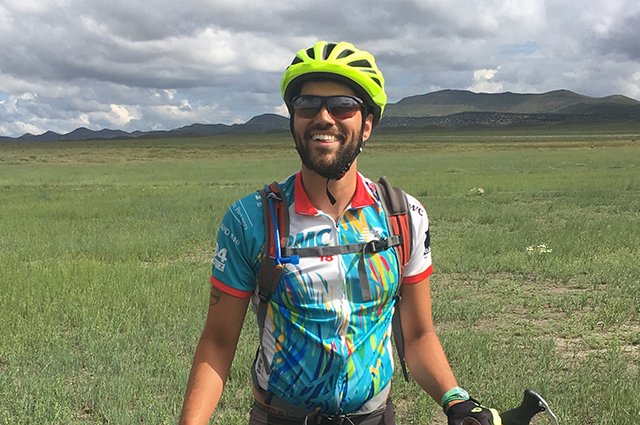Alumni Spotlight: Jonas Procton

Jonas Procton, E19, allowed his passion for engineering and nature to guide his Tufts education. In addition to studying water resources within the Department of Civil and Environmental Engineering, Procton pursued volunteer opportunities with the Office of Sustainability and AmeriCorps. He recently shared his path to a career in sustainable environmental design at the Horsley Witten Group, Inc.
What did you study at Tufts?
I studied Civil Engineering, with a focus on water resources. I also minored in Environmental Science and Policy.
What motivated you to focus on water resources?
Originally, I was very interested in architecture, so pursued civil engineering as a way to combine that interest with my math and science way of thinking. (On top of that, I’m honestly not the most talented artist.) Over time, I realized that my interests in the environment, sustainability, and the outdoors led me to find water resources more up my alley than the structural side of civil engineering.
What was your role as an Eco-Rep in the Office of Sustainability?
As an Eco-Rep, I did all sorts of jobs related to sustainability on Tufts campus. Those included managing the compost program in Carmichael Hall or facilitating campaigns to reduce energy usage in dorms (for example, by encouraging people to use cold water when doing their laundry). Eco-Reps was a really fun way to learn more about sustainability while also spreading the knowledge I gained to peers.
How did you get involved with Americorps?
I became an Americorps Volunteer somewhat unintentionally, but ended up having a great time with my program. During my junior year at Tufts, I applied to work at a group called American Conservation Experience (ACE), which performs trail work and invasive species removal throughout the country. I didn’t realize that ACE was largely funded by Americorps, but learned so much about how hiking trails are built and maintained, which ended up having a lot of overlap with what I was learning through Civil Engineering. For example, I helped build a culvert out of boulders, and the next semester learned the mechanics of how water flows through culverts.
What will you do at Horsley Witten Group, Inc.?
I haven’t actually started at Horsley Witten yet, but from what I understand I’ll be working on projects ranging from river and coastal restoration to park design and watershed management. Horsley Witten is focused on provided nature-based solutions to environmental problems, and I’m really excited to begin my career with them.
Do you have any advice for current students preparing to enter the workforce?
My advice would be to take any chance available to talk to professionals about the type of work they do. Every conversation is a good chance to find out if a field is interesting to you, and if it is, that opens so many more conversations about how to explore that interest. You never know when someone you talk to will turn up down the road or be able to provide you with some guidance.
Department:
Civil and Environmental Engineering